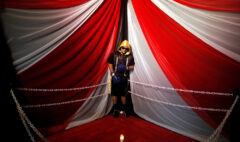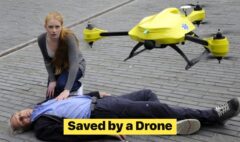Meeting of the Minds
Greetings. We all know that Thomas Edison (1847 – 1931) was a very clever and enlightening fellow. Scientist, inventor, serial entrepreneur, and businessperson, his work would change the way people live around the world and, in the process, help to launch several entirely new industries. Holder of 1,093 U.S. patents, his inventions include the incandescent electric light bulb, the dictaphone, the motion picture camera, the mimeograph, the first phonograph, the first storage battery for an electric car (making him only slightly ahead of his time or ours), the first silent film, the first practical centralized electric power system, the first stock ticker, the first mechanical vote counter, and the first industrial research and development center. Not bad for a guy with ADHD who began his career as a humble telegraph operator.
But fewer of us probably know about Johannes Kepler (1571 – 1630), the German mathematician, astronomer, and astrologer who is most famous for inventing an improved version of the refracting telescope and his work in the field of optics. A contemporary of Galileo and a leading figure in the "scientific revolution," Kepler created a set of laws about the movement of planets that provided a foundation for Newton's theory of gravity and the rather humorous smashing of countless apples in an effort to recreate this great moment in science. He himself was an expansive and integrative thinker building on the work of such varied geniuses as Aristotle, Copernicus, and even God.
So it must have been my good fortune to encounter both of these gentleman on a recent visit downtown…because the odds of meeting two such renowned people at the same time (especially two people who lived roughly 300 years apart) are pretty slim. Or, as the baby on the E-Trade commercials likes to say: "About the same as the odds of being mauled by a polar bear and a regular bear on the same day." But there they were, comparing notes on philosophy and the nature of the scientific process and imagining how they would be received in the current day. Which leads me to an interesting idea for sparking your company's collective curiosity and innovative thinking about a problem or opportunity that really matters…
Why not find one or two people from history whom you truly admire and invite them to help you think about the challenge you're trying to solve? Then do a bit of homework to understand their life, world, and work in order to imagine how they might have addressed the issue at hand. What insight would they have as a leading thinker from another day? What approaches might they have followed? How would they have overcome the key barriers you face in bringing fresh solutions to bear?
We create a culture of curiosity when we are open to learning from different places, people, and times.
We win in business when we unlock the genius in everyone around us. And when we ask ourselves to look at problems and opportunities we face with the impatience of the world's greatest inventor and the eye of a 400-year-old German astronomer.
Cheers!






